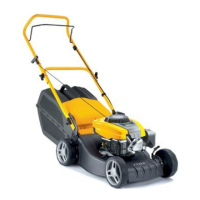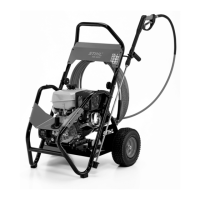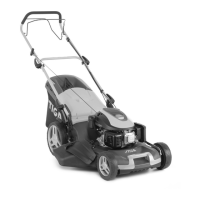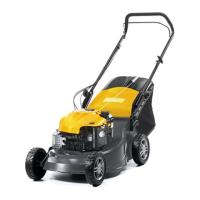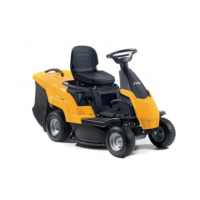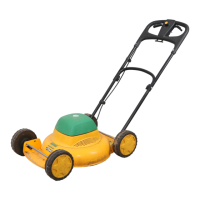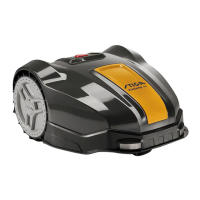OPERATING INSTRUCTIONS
For information on the engine and the battery (if sup-
plied), read the relevant owner manuals.
NOTE – The number which precedes each paragraph
links the references in the text to the respective illus-
trations (listed on page iii and following pages).
1. COMPLETE ASSEMBLY
NOTE The machine can be supplied with some parts al-
ready assembled.
WARNING! Unpacking and completing the assem-
bly should be done on a flat and stable surface, with
enough space for moving the machine and its packag-
ing, always making use of suitable equipment.
Disposal of the packaging should be done in accord-
ance with the local regulations in force.
1.1 Assembling the handle
• Manual ignition models
• Electric key ignition models
1.2 Battery connection
• Electric key ignition models
-
• Electric push-button ignition models
-
1.3 Handle/Bumper
2. CONTROLS DESCRIPTION
NOTE The meanings of the symbols on controls are ex-
plained in the previous pages.
2.1 Throttle lever
2.2 Engine brake lever / cutting means
2.3 Drive lever (where applicable)
-
-
WARNING! To prevent damage to the transmis-
sion, do not pull the machine backwards with the trans-
mission engaged.
2.4 Cutting height adjustment
DO THIS WHEN THE CUTTING MEANS IS STATIONARY.
2.5 Converter control lever (if tted)
In the models with drive systems, the converter
IMPORTANT The engine must be running and the drive
engaged when switching from one speed to another.
Do not touch the converter control when the engine is stop-
ped. Doing this could damage the converter.
NOTE If the machine does not move forward with the le-
ver in the « » position, simply move the lever to « » and
then immediately return to the « » position.
IMPORTANT The engine must be running and the drive
engaged when switching from one speed to another.
Do not touch the converter control when the engine is stop-
ped. Doing this could damage the converter.
3. GRASS CUTTING
3.1 Engine ignition
-
3.1a
• Manual ignition models (“I”)
• Electric key ignition models
3.1b
• Electric push-button ignition models (“II - III”)
-
-
